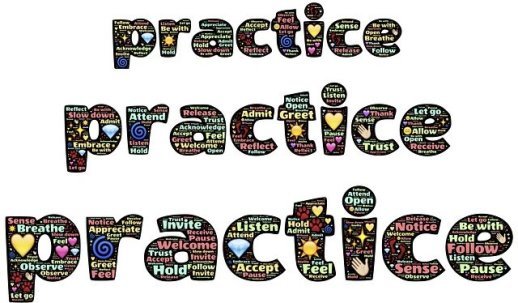Many who have been reading us for a long time already know that in our school of personal finance we put the main emphasis on forming the right financial habits
Habits in our life are decisive. It’s like an air conditioner set to a certain temperature. If you are used to earning or spending a certain amount, then you, as the air conditioner does it, will do it under any circumstances. So it is with the rest of your financial habits. If you are used to saving and saving money, then you will do it always, automatically, without effort.
There is a very famous example of a fishing rod and a fish, when they compare how to help a person – give a fish and make him full for a day, or give a fishing rod and then he will be full for more than one day. So in our school, we give you a fishing rod, or rather a system for forming the right financial habits, which inevitably lead to well-being.

We are often asked for advice on where to invest in order to earn money. It is easy to answer this question – there are bank accounts, corporate or government bonds, company shares – all of this is profitable, we call them technical financial instruments. But without the right financial habits, these technical tools become almost useless.
Let’s give an example. You have invested in stocks and expect dividends in 3 months. You spend all earnings to zero and save nothing, except for the amount that you have already invested in the shares. But you do not have a financial safety cushion and no “insurance fund”.
Suppose your car breaks down (this happens), and income temporarily decreased (the bonus you expected will come later). The question is, will you wait for dividends, if you urgently need free money for repairs, or will you walk for three months.
Most likely, you will sell the stock without waiting for dividends, and at the price that will be in the market at that moment, and not necessarily it will be profitable. And all because you have not formed the right habits to set financial goals, have an “insurance fund” and a financial safety cushion. We will talk about them below.
Habit # 1. Count your expenses.
Why the habit of counting your spending can be an important habit for your financial well-being. Because when you consider your expenses, you can operate with categories, see at the level of the month and year where your money goes. This will help you take control of your spending. This is the first step towards your financial goals.
Habit # 2. Save some of any money you make.
It should be a habit, period. If you don’t learn to set aside some of the money, you will spend everything for any income. Proven – if you increase your income without proper control, so will your expenses. If you spend everything you earn, spend rather than invest, you are depriving yourself of the opportunity to set big financial goals for yourself and fulfill them. The habit of saving money, rather than spending everything earned, is the most important habit. On its basis, you can already set financial goals, plan your costs and save and increase your money.
Habit # 3. Search for a good price.
Note that this is not about savings, but about a bargain price. There is nothing wrong with paying a lower price for a good quality product or service. And spending your time looking for a better deal is often more profitable than taking the first available product or service for the sake of speed.
This approach works best with travel. Often, in order to find a truly favorable price, it is necessary not only to spend time searching for a price, but even sometimes to study and study the subject of the purchase.
Time management books teach us not to waste time, but it is worth considering it as an investment in discount and price reduction. Learning travel planning or how to create the perfect wardrobe is a real investment in your budget.
Habit # 4. Plan your expenses in advance.
Many people should build this habit into themselves. By the way, this is what often interferes with saving and saving. Think for yourself, most of the things we use have a limited life. There are, of course, exceptions, but a TV, washing machine or microwave does not last forever.
And if you include in your spending plans a minimum “insurance fund” amount, you will be insured against unexpected expenses like fixing your washing machine, refrigerator, or unexpectedly bursting wheel. Not to be confused with a financial airbag, it is designed to keep you safe from losing income for a certain period of time.
Habit # 5. Constantly look for opportunities to increase your income.
Another habit that will serve as another step towards your financial well-being. The first reason to build this habit is inflation. Money in our world is constantly depreciating, and over time our expenses grow, even if we do not change our habits. The second reason is that higher incomes often mean development.
You develop to increase your income. Get new qualifications or find new sources of income. The habit of increasing your income contributes to your development.
Habit # 6. Learn financial literacy and personal and family financial management.
The question of why you need to learn financial literacy is already very few people arise. The habit of learning financial literacy directly affects your income. As we wrote in the previous paragraph, if you develop, you increase your income. If you develop as a manager of your and family finances, you will double your income.
We have said more than once that you can spend any money, especially if you do not learn how to manage it.
Habit # 7. Set financial goals – short-term, medium-term, long-term.
Without goals, accumulation and even the most comfortable savings do not make sense. It is almost impossible to save money without purpose and meaning. If you do not know where you want to come, then you will not be able to build a route (build your accumulation in steps), and you will come nowhere. Of course, financial goals for many sounds difficult or unrealistic – some students say “what goals ?, you just need to earn more and then we will buy everything for ourselves.” There is some truth in this statement, but again, there are many real stories when absolutely any big money was spent.
The world knows many stories about how inheritances were squandered or money that was won in the lottery went nowhere. Because they were not saved and, moreover, no goals were set for them. Let’s face it, the likelihood that tomorrow you will win the lottery and start earning more at times is extremely low, slow, systematic growth is much more likely.
Having set at least one realistic goal, you will reach it faster and start saving for a new one.
Habit # 8. Create and update a personal and family financial plan.
Our students often write that they are trying to save money, but they fail and spend money on some very necessary goods or services. All this happens because your personal financial plan does not take into account your basic needs for the year. You will need rest anyway. Either way, you will need to buy seasonal clothing or shoes to replace the leaky ones. Either way, you will need to replace some home appliances. All this needs to be incorporated into a personal or family financial plan, and money should be set aside for this. If all of these expenses do not happen, you can top up your airbag or investment account at the end of the year. Or simply transfer this money to the “insurance fund” next year.

Habit # 9. Maintain a personal budget.
The habit of keeping a personal budget is just as important as the habit of keeping track of your expenses. Only a personal budget is, in fact, self-control of your compliance with your personal financial plan.
Habit # 10. Save and increase your savings.
This is also one of the important habits. If you do not follow the rules from our list, then it will not be possible to save money. There will be unexpected expenses, money will be spent aimlessly and go nowhere. But if you follow the rules from our list and form the correct financial habits according to them, the habit of maintaining and increasing your savings will smoothly integrate into your overall healthy financial lifestyle.
This was a basic list of financial habits that help you achieve financial well-being. Follow these rules, form these habits in yourself and this will become the basis for your future capital.
